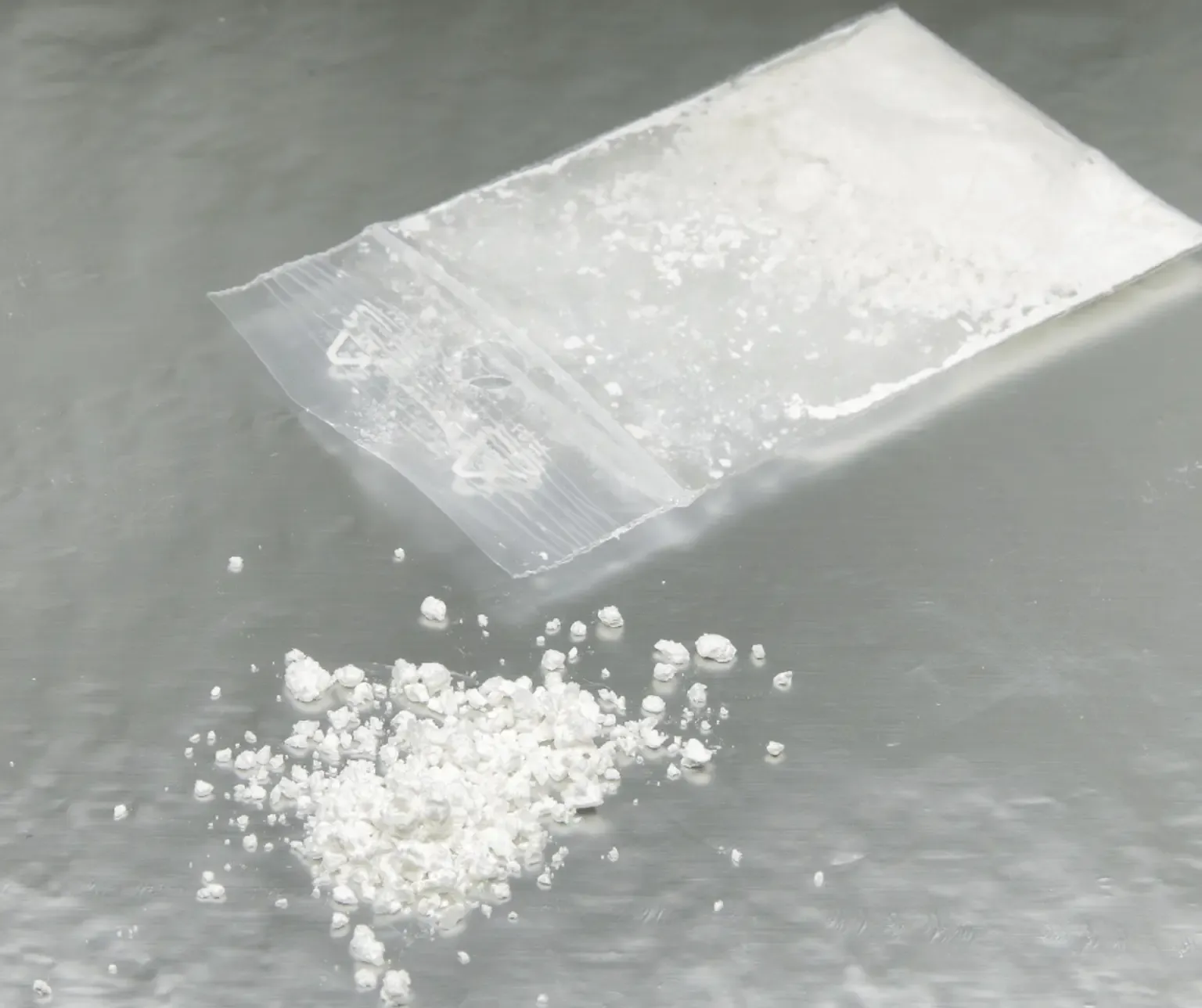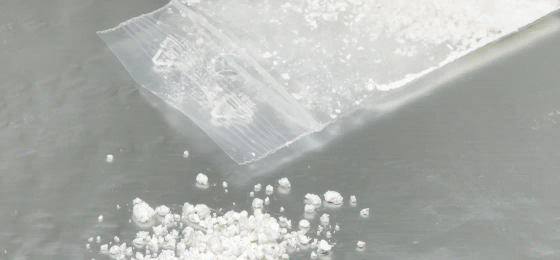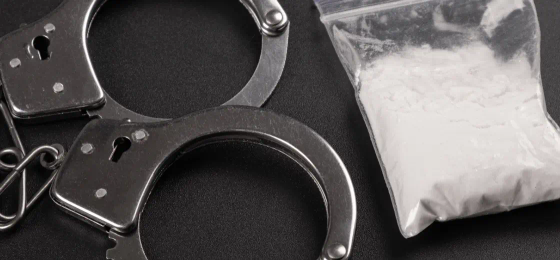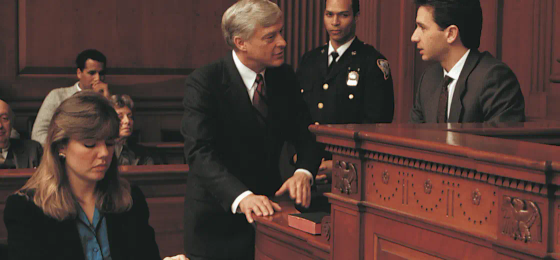What Happens If You Get Caught With Cocaine in the UK?

Being caught with cocaine can be frightening and confusing. You might worry about prison, losing your job, or how it will affect your family. At MMA Law, we understand how stressful this situation is. And we’re here to help you take control.
Cocaine is a Class A controlled drug, meaning it carries the most severe penalties under UK law. Possession alone can lead to up to seven years in prison and a fine. Supplying or intending to supply can result in a life sentence. While these are the maximum penalties, most outcomes depend on the evidence, your involvement, and whether it’s your first offence.
In this guide, we’ll explain what happens if you’re caught with cocaine in the UK, step by step. You’ll learn what to expect during the arrest and interview process, how the Crown Prosecution Service decides charges, and what penalties might apply. We’ll also outline possible legal defences, what happens for first-time offenders, and the long-term impact of a conviction.
If you or someone close to you has been arrested or charged with a cocaine offence, MMA Law’s expert criminal defence solicitors can help. Our team offers calm, clear guidance and immediate legal support when you need it most. Read on to understand your rights, the legal process, and how we can protect your future.

Is Cocaine Illegal in the UK?
Yes. Cocaine is illegal in the UK and is classified as a Class A controlled drug under the Misuse of Drugs Act 1971. This law divides substances into three main categories - Class A, B, and C. With Class A carrying the most serious penalties.
Being a Class A drug means cocaine is treated by the courts as having a high potential for harm and addiction. Other Class A examples include heroin, LSD, ecstasy (MDMA), and methamphetamine.
Under the Misuse of Drugs Act 1971, several offences can apply to cocaine-related cases:
- Possession (Section 5) – having cocaine for personal use.
- Possession with Intent to Supply (Section 5(3)) – holding cocaine with plans to sell, share, or distribute it.
- Production, Supply, or Trafficking (Section 4) – manufacturing, transporting, or selling cocaine to others.
Even a small amount of cocaine can lead to arrest. The police may suspect supply if there are signs such as packaging materials, cash, or messages suggesting distribution.
If you’re found with cocaine, the penalties depend on the specific offence and circumstances. Possession can lead to up to seven years in prison and a fine. Supplying or producing can lead to life imprisonment.
Understanding these laws is vital before speaking to the police or attending court. For immediate legal advice and defence against cocaine-related allegations, contact our Drug Defence Solicitors at MMA Law. We’ll help you understand your rights and the best way forward.
What Happens When You’re Caught With Cocaine?
If you’re caught with cocaine, the process can feel intimidating. Knowing what to expect can help you stay calm and make informed choices. Here’s what usually happens after an encounter with the police.
Stop and Search
Police officers can stop and search you if they have reasonable suspicion that you’re carrying illegal drugs. These powers come from the Police and Criminal Evidence Act 1984 (PACE). Officers must identify themselves, explain why you’re being searched, and record the process. If cocaine or related items are found, they can arrest you immediately.
Arrest
If officers believe an offence has been committed, you will be arrested and taken to a police station. You should be told the reason for your arrest and your legal rights. You have the right to remain silent and to request a solicitor straight away. This is a crucial stage - what you say here can shape the rest of your case.
Custody and Police Interview
At the station, you’ll be booked into custody. You’ll be informed of your rights, including the right to free, independent legal advice. Never attend an interview without legal representation. Having a solicitor, such as MMA Law’s Criminal Defence Solicitors, present ensures that your rights are protected and that you don’t unintentionally harm your defence.
Drug Testing and Evidence Collection
The police may conduct drug tests or seize items such as your phone, cash, or personal belongings. These can be examined for evidence of possession or intent to supply — for example, messages, weighing scales, or small bags.
Charging Decision
Once the investigation is complete, the Crown Prosecution Service (CPS) reviews the evidence and decides whether to charge you. The charge could range from simple possession to possession with intent to supply, depending on the facts.
If charged, you may be released on bail with conditions or remanded in custody until your court date.
Getting early legal advice can make a significant difference. A solicitor can challenge unlawful searches, ensure interviews are conducted properly, and begin building your defence immediately.
If you or someone close to you has been arrested, contact MMA Law’s Criminal Defence Solicitors in Middlesbrough for urgent legal support. Early representation often leads to better outcomes.

Cocaine Possession Offences and Penalties
Cocaine offences in the UK are taken very seriously. The penalties you face depend on the nature of the offence, the amount of cocaine involved, and your personal circumstances. The courts follow Sentencing Council guidelines, which help ensure consistency but still allow flexibility based on each case.
Simple Possession
If you’re caught with cocaine for your own personal use, the offence is classed as simple possession under Section 5 of the Misuse of Drugs Act 1971. The maximum sentence for possession of a Class A drug is seven years in prison, an unlimited fine, or both.
However, the actual penalty for first-time offenders is often less severe. The police or court may issue:
- A formal warning or caution, particularly for small amounts.
- A fine or community order if the offence is more serious.
- In rare cases, a short custodial sentence, depending on the circumstances.
Even a caution creates a criminal record, which can affect travel, employment, and future opportunities. Seeking early advice from MMA Law’s drug conspiracy solicitors can help you explore alternatives to conviction, such as diversion or rehabilitation schemes.
Possession With Intent to Supply
If the police or CPS believe you intended to sell or share cocaine, you may be charged with possession with intent to supply under Section 5(3) of the Act. The maximum sentence is life imprisonment and an unlimited fine, though typical sentences range from three to nine years, depending on your role and the quantity involved.
Intent is often inferred from evidence such as:
- Multiple packages or deal bags.
- Large sums of cash.
- Scales, cutting agents, or debt lists.
- Messages or calls suggesting drug supply.
A strong defence may challenge how this intent was established or whether the search and seizure were lawful.
Aggravating & Mitigating Factors
Courts consider several factors when deciding the sentence:
Aggravating factors:
- Previous drug convictions.
- Large quantities of cocaine.
- Leading or organising role in supply.
- Offending near schools or involving minors.
Mitigating factors:
- Genuine remorse or cooperation with police.
- Small quantity for personal use.
- Lack of prior convictions.
- Steps taken towards rehabilitation.
What Are the Long-Term Consequences of a Cocaine Conviction?
A cocaine conviction can have serious and lasting consequences that go far beyond the initial sentence. Understanding these risks highlights why strong legal defence and early advice are so important.
Criminal Record and Employment
Any conviction for a Class A drug offence creates a criminal record. This will appear on background checks and can affect future job prospects, especially in professions that require DBS clearance, such as teaching, healthcare, or financial services. Employers may view drug offences as a risk to trust and responsibility, even for first-time offenders.
Travel and Visa Restrictions
Many countries, including the United States, Canada, and Australia, impose strict entry rules for individuals with drug convictions. You may be denied a visa or refused entry at the border, regardless of how long ago the offence occurred. This can affect work, study, or family travel plans.
Professional and Personal Impact
A conviction can also impact professional licensing, such as for medical practitioners, solicitors, or care workers. Insurance costs can rise, and certain financial applications may be refused. Socially, a conviction can lead to strained relationships, stigma, and family pressure.
Rehabilitation and Moving Forward
Despite these challenges, it’s important to remember that the law recognises rehabilitation. Courts often consider steps you take to address substance use or improve your circumstances. Completing a drug rehabilitation programme, cooperating with support services, and maintaining good behaviour can help reduce the long-term harm of a conviction.

Possible Defences to Cocaine Offences
Being accused of a cocaine-related offence does not mean you will be convicted. Several possible defences may apply, depending on the facts of your case. A skilled solicitor will examine every detail of the evidence, identify weaknesses in the prosecution’s case, and protect your rights at each stage.
Lack of Knowledge
One of the most common defences is that you were unaware of the drug’s presence. For example, someone may have placed cocaine in your vehicle, bag, or home without your knowledge. To secure a conviction, the prosecution must prove that you knowingly possessed the substance.
No Intent to Supply
If the police claim you intended to sell or distribute cocaine, your solicitor may argue that the drugs were for personal use only. Evidence such as the amount, packaging, and messages on your phone will be reviewed carefully. Distinguishing personal use from supply can significantly reduce the potential sentence.
Unlawful Search or Seizure
Under the Police and Criminal Evidence Act 1984 (PACE), officers must follow strict procedures during searches and arrests. If the police failed to follow these rules — for instance, by not having reasonable suspicion or a valid search warrant — your solicitor may challenge the lawfulness of the search. Evidence obtained unlawfully can sometimes be ruled inadmissible.
Duress or Coercion
If you were forced or threatened into holding or transporting drugs, this may form a valid defence. The law recognises that individuals acting under duress are not always fully responsible for their actions.
Chain-of-Custody Errors
In some cases, the prosecution’s evidence may be unreliable due to mishandling, contamination, or gaps in the chain of custody. Your solicitor can request full disclosure of how the drugs were tested, labelled, and stored to identify inconsistencies.
The Role of Your Solicitor
At MMA Law, our team analyse police reports, witness statements, and forensic evidence in detail. We challenge any unlawful procedures and negotiate with the Crown Prosecution Service (CPS) where appropriate. If you are accused of involvement in wider drug operations, we can also assist through our County Lines Drug Trafficking Solicitors service.
Having experienced legal representation from the start gives you the best chance of reducing or defeating the charge altogether.
Frequently Asked Questions
Is cocaine a Class A drug?
Yes. Cocaine is a Class A controlled substance under the Misuse of Drugs Act 1971. This is the highest classification and includes other drugs such as heroin, ecstasy, and LSD. Class A status means the law treats possession and supply as the most serious offences, carrying tougher penalties than Class B or C drugs.
What are the penalties for cocaine possession?
The maximum penalty for cocaine possession is seven years in prison, an unlimited fine, or both. Sentencing depends on factors such as the amount found, your intent, and whether you have a previous record. For first-time or minor cases, courts may issue a caution, fine, or community order instead of imprisonment.
What happens for first-time offenders caught with Cocaine?
If it’s your first time being caught with cocaine, you may avoid a prison sentence. The police could issue a caution, community order, or diversion to a rehabilitation programme if the cocaine was for personal use. However, even a caution creates a criminal record, so legal advice is crucial to reduce the impact and explore alternatives to prosecution.
What’s the difference between possession and intent to supply?
Possession means having cocaine for personal use. Possession with intent to supply means you’re accused of planning to sell, share, or distribute it. The difference often depends on evidence such as packaging, cash, or text messages. Supply offences carry far harsher penalties - up to life imprisonment. Possession carries up to seven years.
Can I go to prison for a small amount of cocaine?
Yes, it’s possible, but unlikely for a first offence. Courts often issue a caution, fine, or community order for small amounts meant for personal use. Repeat offences or links to supply increase the risk of custodial sentences. Always seek early legal advice to minimise this risk.
What if the police found cocaine in my car?
If cocaine is found in your car, you may still be charged with possession even if the drugs weren’t yours. The prosecution must prove you knew about the cocaine or had control over it. A solicitor can help you show lack of knowledge or challenge how the search was carried out under PACE 1984.
Can I get a caution instead of a conviction?
Yes. The police can issue a caution for minor, first-time cocaine possession offences. A caution avoids court but still appears on your criminal record. A solicitor can help argue for a caution instead of prosecution, particularly if you cooperate and show willingness to address the issue.
How long does a cocaine charge stay on record?
A cocaine conviction stays on your criminal record permanently but may become “spent” after a set period under the Rehabilitation of Offenders Act 1974. For example, a caution is spent immediately, while a community order or prison sentence takes longer. Spent convictions no longer need to be disclosed for most jobs, except those involving vulnerable people or security clearance.
Can MMA Law represent me if I’ve already been charged?
Absolutely. MMA Law can represent you at any stage - from police interview to court proceedings. Our expert solicitors can review your case, challenge unlawful evidence, and work to reduce or dismiss charges. We provide immediate, confidential support to help protect your rights and your future.

How MMA Law Can Help if You’ve Been Caught With Cocaine
Facing a cocaine-related allegation can feel overwhelming. You may be unsure of what will happen next or how to protect your future. At MMA Law, we understand the stress these situations cause. We’re here to help from the moment you need us.
Our experienced solicitors provide expert legal representation at every stage of the process, including:
- Police station attendance – we can represent you during interviews to ensure your rights are protected and you don’t say anything that could harm your case.
- Evidence review – our team examines how the drugs were found, whether the search was lawful, and whether procedures under the Police and Criminal Evidence Act 1984 were correctly followed.
- Defence preparation – we analyse witness statements, forensic reports, and digital evidence to identify weaknesses in the prosecution’s case.
- Negotiating outcomes – we can engage with the Crown Prosecution Service (CPS) to seek reduced charges, alternative sentencing, or case dismissal where possible.
Even a small error during the investigation can affect the result. Having the right legal team from the start can make a real difference to your case outcome.
If you’ve been arrested or charged with a cocaine-related offence, contact MMA Law’s expert solicitors for a free, confidential 30-minute legal consultation. We’ll help you understand your options, protect your rights, and take the right steps towards the best possible result.
